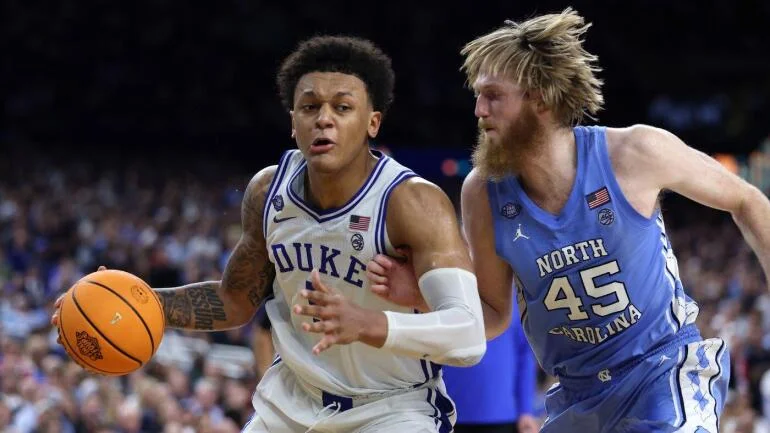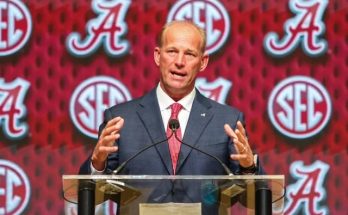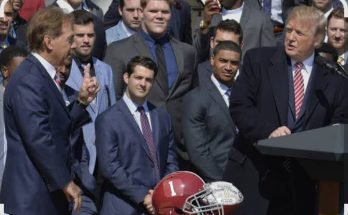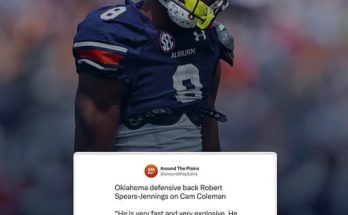Paolo Banchero, now the face of the Orlando Magic and one of the brightest young stars in the NBA, made headlines recently for a revelation that may surprise some Duke fans: before he ever donned the iconic blue and white jersey of the Blue Devils, he had a soft spot for their most bitter rival.
Yes, Banchero admitted that he liked North Carolina growing up.
It’s a confession that might cause a double-take among those who followed his journey through Duke, where he became one of the most dominant freshmen in recent memory, leading the team to a Final Four appearance in 2022. But like many kids swept up in the legacy and flair of college basketball, Banchero’s early allegiance was shaped by what he saw and who he admired on the screen before he even dreamed of stepping on those same courts.
“I used to like North Carolina,” Banchero said candidly in a recent interview. “I mean, I was a fan of a lot of their players growing up. Guys like Ty Lawson, Harrison Barnes, and even Marcus Paige—those dudes were fun to watch.”
His comments sparked a flurry of reactions on social media, ranging from light-hearted ribbing by Duke fans to respect for his honesty. In the heated landscape of college basketball, where fan bases bleed their team colors and rivalries run deep, admitting you liked “the other side” is often considered blasphemy. But Banchero’s transparency is also a reminder that the college basketball experience is bigger than just one school or one rivalry.
Long before he arrived at Cameron Indoor Stadium, Banchero was just a kid in Seattle obsessed with basketball. Growing up on the West Coast, his exposure to college hoops came primarily through nationally televised games and the annual spectacle of March Madness. And during that era, North Carolina had its fair share of shining moments. With elite guards, fast-paced play, and a seemingly endless supply of NBA-caliber talent, it’s no wonder a young Paolo was captivated.
But as he matured as a player and his recruiting stock skyrocketed, Banchero started seeing things from a different perspective. His decision to choose Duke over other programs, including Kentucky, Gonzaga, and yes, North Carolina, was grounded in what he felt was the best fit for his future, both as a player and as a person.
“When I took my visit to Duke, it just felt different,” Banchero said. “Coach K, the campus, the atmosphere—everything just clicked. I knew that’s where I wanted to be.”
His time at Duke justified that decision. Averaging 17.2 points, 7.8 rebounds, and 3.2 assists per game, Banchero was not only named the ACC Rookie of the Year but also helped lead the Blue Devils to the Final Four in Mike Krzyzewski’s final season as head coach. The storyline practically wrote itself: a five-star prospect turned Duke superstar, helping to send off the most legendary coach in college basketball history.
And as fate would have it, Banchero’s college career came full circle when Duke faced none other than North Carolina in that Final Four. It was the first time the two schools had ever met in the NCAA Tournament, and it lived up to every ounce of the hype. The Tar Heels prevailed in a thrilling game, denying Coach K a championship send-off and adding another chapter to the storied rivalry. Banchero had 20 points and 10 rebounds in that game, a performance that showcased his talent and competitiveness on the biggest stage.
Even in defeat, Banchero solidified his status as a future star. He declared for the NBA Draft shortly after and was selected No. 1 overall by the Orlando Magic in 2022. Since then, he has continued to blossom, earning NBA Rookie of the Year honors and becoming the centerpiece of a young and promising Orlando team.
Despite his early admiration for North Carolina, there is no question about Banchero’s place in Duke lore. His commitment to the program, his performance on the court, and his leadership in a transitional year have all left an indelible mark. His comments about liking UNC as a kid don’t diminish his contributions in Durham; if anything, they humanize him and make his journey even more compelling.
It also highlights a broader truth about modern athletes. The lines between rivals can be blurry when you’re a young fan just soaking in the game. Before the recruiting letters, the visits, the commitments, and the rivalries, these players are fans themselves. They look up to players, they fall in love with styles of play, and sometimes, yes, they like the “wrong” team.
Banchero’s story isn’t the first of its kind. There are countless examples of players who grew up idolizing one team but went on to star for another. Kevin Durant, for example, was a fan of the Toronto Raptors and Vince Carter before playing for Texas. LeBron James idolized Michael Jordan and the Chicago Bulls but never played for them. For many, fandom evolves as opportunity and personal growth redefine priorities.
For Banchero, that evolution came when he saw what Duke could offer him not just as a player, but as a man. He talks openly about the bonds he built with teammates like Wendell Moore Jr., Mark Williams, and Trevor Keels, and the lessons learned under Coach K. His year at Duke was more than a stepping stone to the NBA; it was a transformative experience that helped shape his identity.
As for his UNC fandom? That chapter is in the past. These days, he’s all-in on his professional career and focused on bringing the Magic back to prominence. But he isn’t afraid to admit where he came from, even if it means raising a few eyebrows in Durham.
“I think it’s okay to be honest,” Banchero said. “I liked watching good basketball. North Carolina had a lot of great players. But once I got to Duke, that was my home. That was my family.”
And that’s the beauty of it all. Rivalries in college sports are real, passionate, and sometimes all-consuming. But at the end of the day, they’re also built on a mutual respect for the game, for the competition, and for the journey that brings a player from fandom to the spotlight.
Paolo Banchero’s admission doesn’t change what he accomplished at Duke. If anything, it adds depth to his narrative—a narrative that continues to unfold with each game he plays in the NBA. It shows that our paths are rarely linear, that childhood favorites don’t always dictate our futures, and that greatness can emerge from the most unexpected places.
In the end, it doesn’t matter who Banchero liked growing up. What matters is who he became—a Duke star, an NBA standout, and a player who’s unafraid to tell his story.



